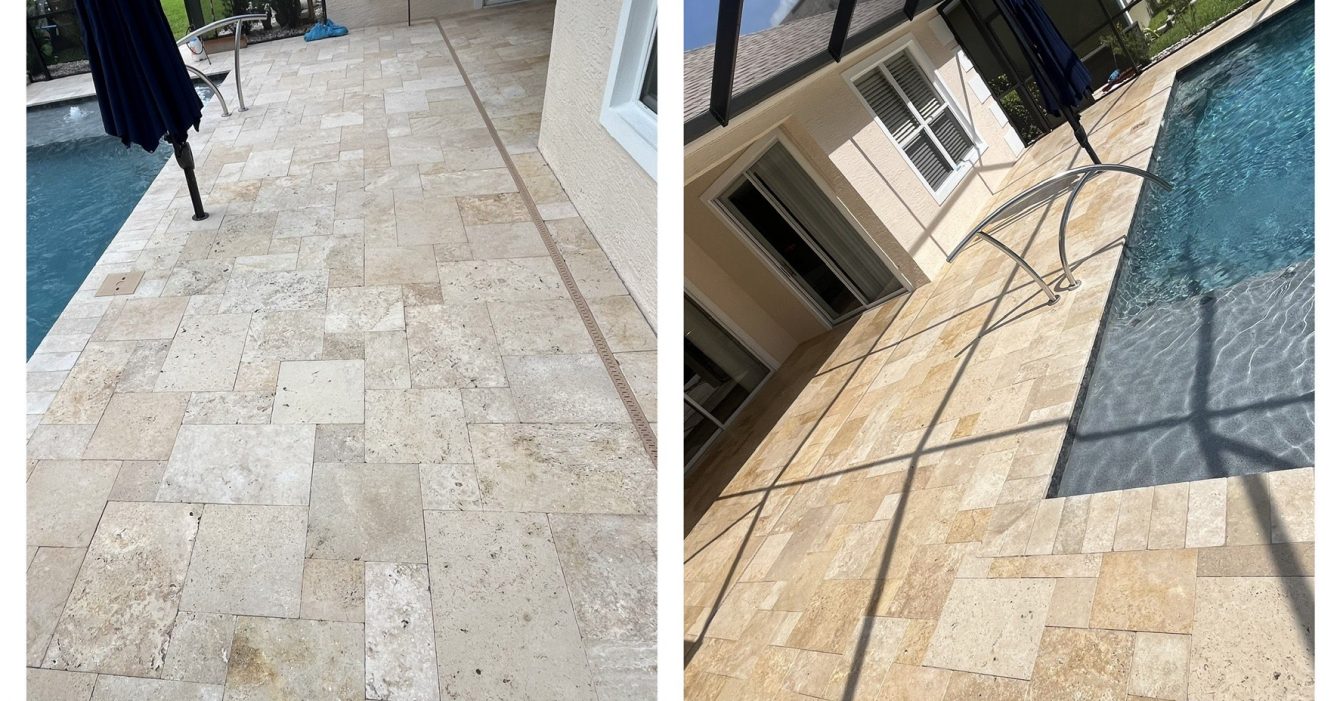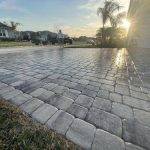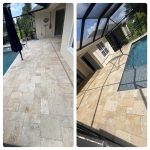Why Seal Your Travertine?
Stain Prevention: Sealing your travertine creates a protective barrier that repels spills and stains, including those from food, red wines, oils, grill grease, and pool chemicals.
Enhanced Durability: Sealed travertine is less prone to cracking, chipping, and wear, ensuring your investment lasts for years to come.
Color Enhancement: Sealing can intensify the natural colors of your travertine, making it appear more vibrant and appealing.
Easier Maintenance: Sealed travertine is easier to clean and maintain, requiring less effort to keep it looking pristine.
Weather Resistance: THE SUN BLEACHES THE TRAVERTINE. Outdoor travertine is exposed to the elements. Sealing it helps protect against rain, sun, and mold/algae, preventing weather-related damage.
Types of Travertine Sealing: Natural (recommended) vs. Gloss Finish
Natural Finish:
Gloss Finish:
How to Seal Your Travertine Tiles
Prepare Your Surface: Clean the travertine thoroughly to remove any dirt, debris, or stains. Allow it to dry completely before proceeding.
Strip Old Sealer: If there is still film or sealer on from the previous sealing job you will want to remove that with a chemical stripper. If this step is not done it can cause whitening or clouding after the new sealer dries.
Choose the Right Sealer: Select a high-quality travertine sealer suitable for your desired finish (natural or matte). Read the manufacturer’s instructions. Do not buy sealer from Home Depot or Lowes. USE CAUTION** if an acrylic sealer is applied and it fails, it will cost twice the amount to fix the issue.
Apply the Sealer: Use a sealer applicator, brush, or sprayer to apply the sealer evenly. Work in small sections to ensure proper coverage.
Let It Cure: Allow the sealer to cure as per the manufacturer’s recommendations. This typically takes a few hours to a day.
Repeat as Necessary: Depending on the type of sealer used and the specific travertine, you may need to apply multiple coats for optimal protection.
How Often to Seal Travertine
In conclusion, whether you choose a natural or gloss finish for your travertine sealing, the most crucial decision is to protect your investment and maintain its natural beauty. To ensure the job is done right, consider enlisting the expertise of Sealer Pro, LLC, for professional travertine sealing services. By making the right choices, your travertine can remain a stunning centerpiece in your outdoor space for years to come. Learn more at sealerprollc.com/services/travertine-sealing









